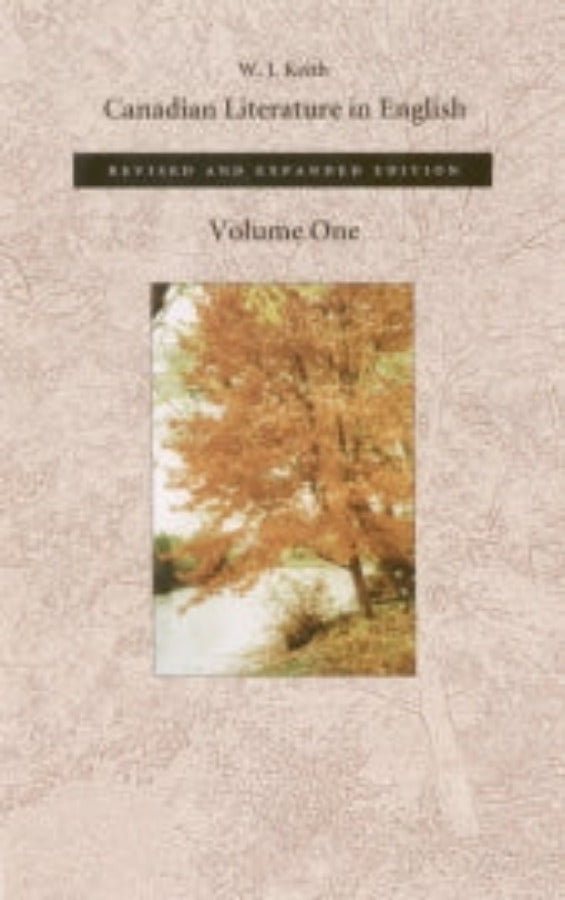Canadian Literature in English: Volume One
Canadian Literature in English: Volume One
W. J. Keith has chosen to ignore utterly both the ‘popular’ at the one extreme (Robert Service, Lucy Maud Montgomery) as well as the ‘avant-garde’ (bpnichol, Anne Carson) at the other in favour of those authors whose style lends itself to the simple pleasure of reading, and to that end Keith dedicates his history to all those (including those of the general reading public whose endangered status is much lamented) who ‘recognize and celebrate the dance of words.’
When Canadian Literature in English was first published by Longman in 1985 it was described (in the Modern Language Review) as ‘a standard reference work on the subject’ and ‘the best critical account of its subject that we possess so far’. The book was released in London and New York, as such things were done at the time, but never distributed particularly well in Canada, where it faded, rapidly, from view.
W. J. Keith, writing in the Preface to the Revised Edition, admits his first inclination was to embark on a total rewrite of the Longman edition. On further consideration, however, Keith came to realize that the 1985 publication was completed at ‘the close of a major phase in the Canadian literary tradition’ and that the ‘remarkable flowering that began to manifest itself in the middle of the twentieth century had run its course by the beginning of the new millennium.’
That being the case, Keith would argue that a ‘number of writers who had already achieved [ considerable ] stature further developed their reputations’ (in the period 1985-2005) ‘but only a few extended them’. Keith is also quick to admit that he has chosen to ignore utterly the ‘popular’ at the one extreme (Robert Service, Lucy Maud Montgomery) as well as the ‘avant-garde’ (bpnichol, Anne Carson) at the other, in favour of those authors whose style lends itself to the simple pleasure of reading, and to that end he dedicates his history ‘to all those (including the general reading public whose endangered status is much lamented in the ‘‘Polemical Conclusion’’) who recognize and celebrate the dance of words.’

